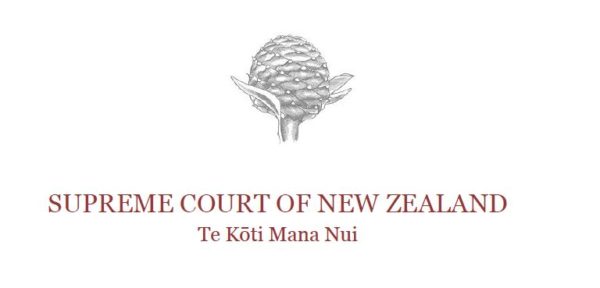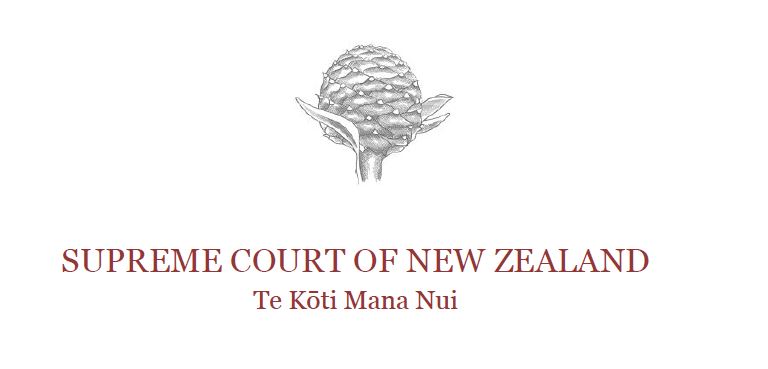
MATHIAS ORTMANN AND OTHERS v UNITED STATES OF AMERICA AND ANOTHER (SC 54/2018) [2018] NZSC 125
FINN HABIB BATATO v UNITED STATES OF AMERICA (SC 55/2018)
MATHIAS ORTMAN AND ANOTHER v UNITED STATES OF AMERICA (SC 56/2018)
KIM DOTCOM v UNITED STATES OF AMERICA (SC 57/2018)
KIM DOTCOM v UNITED STATES OF AMERICA AND ANOTHER (SC 58/2018)
PRESS SUMMARY
This summary is provided to assist in the understanding of the Court’s judgment. It does not comprise part of the reasons for that judgment. The full judgment with reasons is the only authoritative document. The full text of the judgment and reasons can be found at Judicial Decisions of Public Interest www.courtsofnz.govt.nz
The United States of America has requested the extradition of the applicants. Judge Dawson, in the District Court, determined they were eligible for surrender under the Extradition Act 1999. The applicants appealed unsuccessfully against this finding to both the High Court and the Court of Appeal. They now seek leave to appeal to this Court in respect of the extradition decision. However, there is dispute whether this Court has jurisdiction to entertain the proposed appeals. This judgment addresses that issue – that is, whether matters decided under the Extradition Act are appealable to the Supreme Court
It is common ground that under the now relevant provisions of the Extradition Act and the Criminal Procedure Act 2011, the Court has jurisdiction to hear appeals in cases involving extradition. This case, however, falls to be determined by reference to the law as it was when the extradition proceedings commenced – that is, in 2012 which was before the Criminal Procedure Act came into effect. The case turns on the combined effect of the Supreme Court Act 2003 and the Summary Proceedings Act 1957 as they were in 2012.
Section 7 of the Supreme Court Act provided a right of appeal to the Supreme Court in civil proceedings (defined as being proceedings which were not criminal) in respect of all decisions of the Court of Appeal, other than those declared by statute to be final. In the case of “criminal proceedings” (an expression which was not defined), s 10 authorised rights of appeal as provided for in three statutes dealing with criminal proceedings, including most relevantly the Summary Proceedings Act.
The case was conducted before the Court on the assumption by counsel on both sides that proceedings under the Extradition Act are criminal in nature. The Court dealt with the case on this basis despite having reservations whether this assumption was correct for the purposes of ss 7 and 10 of the Supreme Court Act.
The appeals to the Court of Appeal in this case were brought under s 69(1)(p) of the Extradition Act. Under this paragraph, such an appeal was required to be dealt with “as if” it were an appeal under s 144 of the Summary Proceedings Act. Section 144 provided for a right of appeal from the High Court to the Court of Appeal. The right to appeal to the Supreme Court was conferred by s 144A(1)(c) which provided for a right of appeal to this Court against “a decision … on an appeal under section 144(1)”. In issue is whether the judgment of the Court of Appeal in this case was “on” appeals “under section 144(1)”.
The Supreme Court has unanimously held that the appeals to the Court of Appeal were under s 144(1) and that therefore it has jurisdiction to entertain the proposed appeals.
On a very strict approach to the statutory language, it can be said – as the United States asserted – that the decision of the Court of Appeal was “on an appeal under s 69(1)(p) of the Extradition Act”. But given that s 144 applied to the appeal, it is not an abuse of the language to say that it was also under s 144(1). (This Supreme Court summary was published by Scoop News. You need a licence to use ot for commercial purposes.)
Treating the appeals in this case as having been under s 144 also avoids what would otherwise be a surprising anomaly in respect of extradition. If extradition proceedings were sufficiently criminal in nature to have been provided for in the Summary Proceedings Act, there would undoubtedly have been a right of appeal to this Court. If, on the other hand, they were not criminal in nature, then there would be a right of appeal under s 7 of the Supreme Court Act.
The assumption on which we are deciding this issue – that extradition proceedings are criminal in nature – makes it all the more logical to treat the appeals as having been under s 144. And, given the significance of extradition, there is no reason to suppose that the parliamentary purpose was to exclude a right of appeal to this Court. As to this, there is nothing in the parliamentary record to suggest an understanding that the amendments consequential to the enactment of the Criminal Procedure Act created rights of appeal to this Court which had not previously existed.
In a judgment to be released separately, the Court has granted the applicants leave to appeal.
Judgment: 2018NZSC125OrtmannvUSA.pdf






“Summary Proceedings” :/
Dotcom is not lying down.
The USA takes on the world with its hubris and deadly pathological systematic crushing of any free thought towards a fairer deal for the mases who seek independent decision making and societal equity for now and any future generations.
The tiny 400 million brainwashed yanks who are taxed heavily to enable the off shore murder of million so the US based oligarchs can leech humanity and the planet.
Of course revolt is likely so surveillance has reached into every home and discourse digitally connected. The yanks believe they rule the world and can over ride laws set by any other sovereign state.
TPPA was evidence of that and NACT complied dutifully like the traitors they are.
Go Dotcom
https://www.rt.com/usa/united-stasi-america-dotcom-850/
Comments are closed.